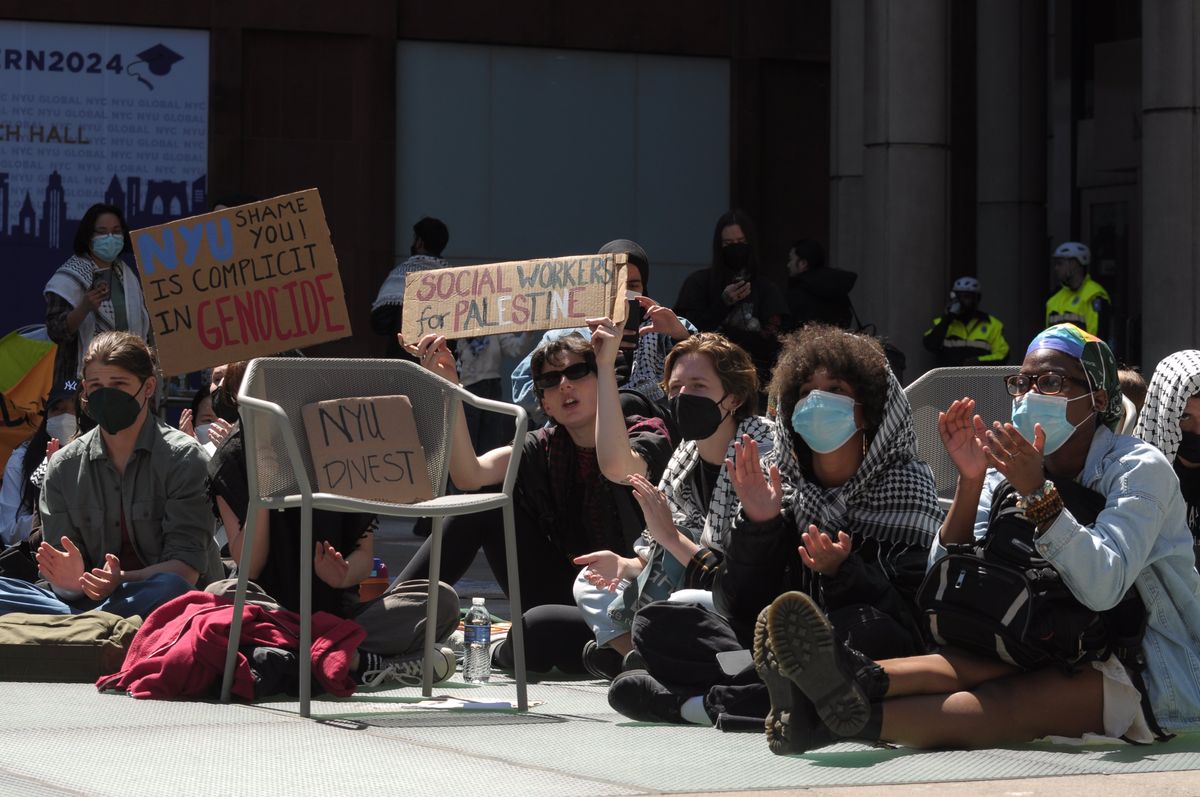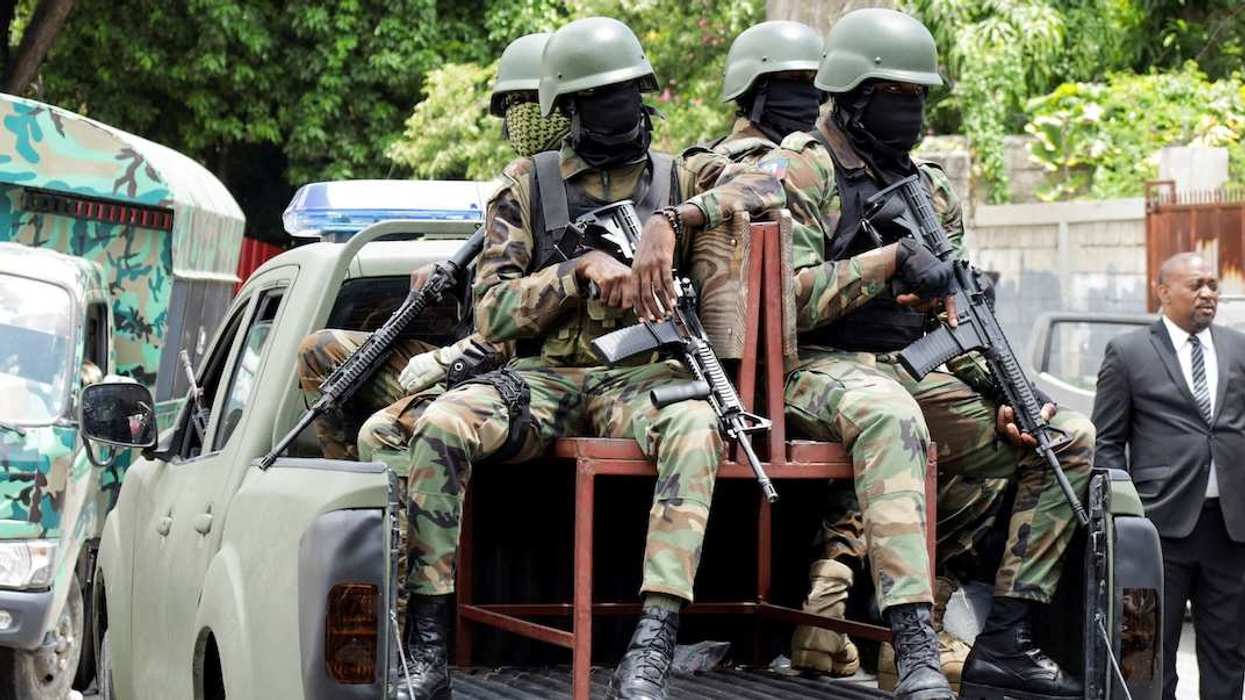Across the US, college students have been protesting, sleeping outside, and even getting arrested for trying to force their schools to divest from companies with ties to Israel. Meanwhile, it's been business as usual on Capitol Hill, where the Senate approved a $95.3 billion aid package for Ukraine, Israel, and Taiwan late Tuesday. The bill, which includes $17 billion in wartime assistance to Israel plus $9 billion for humanitarian aid in Gaza, is now heading for President Joe Biden's desk, where it is expected to be signed.
Student protesters have been targeting companies like Hewlett Packard, Lockheed Martin, and Airbnb, identified by the Boycott, Divestment, and Sanctions movement as benefitting the Israeli government, which they blame for the 34,183 Palestinians who have died from Israeli attacks on Gaza since Oct. 7. At Columbia College, the oldest undergraduate college at Columbia, 76.5% of students voted this week for the university’s $13.6 billion endowment to divest from Israel. Divestment is being pushed on campuses across the country, from Columbia and Yale to the University of Michigan and Berkeley, to name a few.
Universities appear unlikely to cave to protesters' demands and are instead bracing for chaotic ends to the semester. Columbia has moved to hybrid learning in acknowledgment that many students, particularly Jewish students, report feeling unsafe on campus. Meanwhile, colleges are weighing whether it is possible to hold graduation ceremonies without them becoming high-profile stages for protest.
Yet, despite intense student activism on campuses, there was no sign of public protest against the aid package on Capitol Hill this week.
Biden knows he is facing a possible backlash from Gen Z voters over Gaza and US funding for Israel. The president had hoped tougher talk on Israel would boost his reelection bid, but with less than seven months before Nov. 5, the protests and aid package could make it more difficult for him to get young voters to the polls.


















